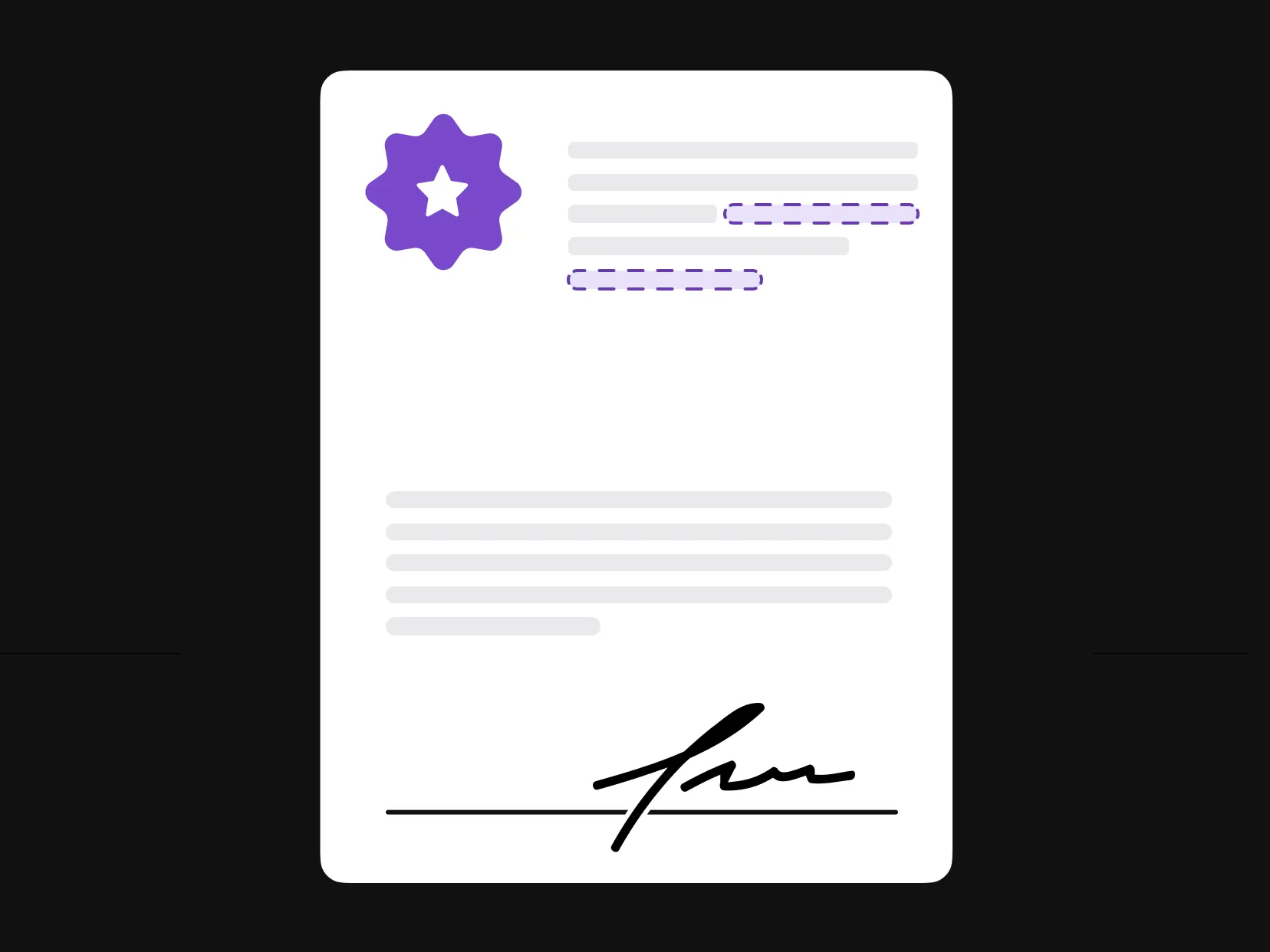Starting a wholesale business comes with plenty of opportunities, but before you can buy products in bulk and sell them for profit, you’ll need one important thing: a wholesale license.
This license opens the door to purchasing goods at wholesale prices, building stronger supplier relationships, and keeping your business compliant with state regulations.
Understanding how to get a wholesale license may feel like one more hurdle in your entrepreneurial journey, but the process is more straightforward than it seems. Let’s break it down step by step so you can set your business up for success.
What is a wholesale license?
A wholesale license is a term many new business owners use when they’re looking for permission to buy products in bulk and resell them. Technically, there isn’t a single document called a “wholesale license.” What most states actually require is a reseller permit (sometimes called a resale certificate). This license allows you to:
- Buy products at wholesale prices without paying sales tax upfront
- Resell those products to customers while collecting sales tax where required
- Work directly with wholesalers and distributors who may ask for your permit before doing business with you
- Stay compliant with state tax laws and avoid penalties
Throughout this blog, we will use the term wholesale license.
Wholesale license vs. seller’s permit vs. reseller’s permit
As discussed above, a wholesale license is not usually a legally recognized document. Instead, it’s a common search term business owners use when they’re trying to understand what’s required to buy products in bulk.
In most states, the actual requirement is a reseller’s permit.
Another term you may come across in your research is seller’s permit. It’s often used interchangeably with a wholesale license and a reseller’s permit, but it’s not the same thing. While a reseller’s permit focuses on tax-exempt purchases for resale, a seller’s permit authorizes you to collect sales tax on transactions within your state. Both documents may be necessary depending on your business model and state regulations.
| License/Permit | Purpose | Who Needs It | Tax-Exempt? |
|---|---|---|---|
| Wholesale License | General phrase people use to describe licenses or permits needed to buy wholesale goods | Business owners purchasing inventory in bulk and selling at wholesale prices | Yes, when referring to a reseller’s permit |
| Reseller’s Permit | Allows businesses to buy inventory tax-free for resale purposes | Retailers, wholesalers, and distributors purchasing goods to resell | Yes |
| Seller’s Permit | Authorizes a business to collect and remit sales tax from customers | Any business selling taxable goods or services in a state that requires it | No |
Why you need a wholesale license
Securing a wholesale license is an important step in setting up your business for long-term success. Without the proper documentation, many wholesalers won’t sell to you, and you could face penalties for failing to comply with state tax requirements. A wholesale license offers benefits like:
- Access to wholesale pricing: Buy products at lower bulk rates, giving you the ability to achieve a better profit margin.
- Tax advantages: Avoid paying sales tax upfront on items you plan to resell, keeping more cash flow available for inventory and operations.
- Supplier credibility: Many wholesalers require a valid reseller’s permit before opening an account, so having one establishes your business as legitimate.
- Compliance with state laws: Stay aligned with state tax regulations and avoid costly fines or disruptions.
Let’s say you’re opening an online boutique that sells home décor. With a wholesale license, you can buy furniture and accessories directly from distributors at bulk rates, skip paying sales tax upfront, and then resell those items through your online store while collecting the appropriate tax from your customers.
How to get a wholesale license
Applying for a wholesale license is a straightforward process, but it does require preparation and the right paperwork. Each state sets its own rules, so the exact steps may vary. Generally, you’ll need to register your business, apply for an employer identification number (EIN), and submit the proper documents before paying fees and waiting for approval. Let’s take a closer look at each step.
Step 1: Register your business
Before you can apply for a wholesale license, your business must be officially registered. That means selecting a legal structure, registering with your state, and making sure your business name is unique. A few common business structures for wholesalers include:
- Sole proprietorship
- Partnership
- Limited Liability Company (LLC) — learn more about the types of LLCs
- Corporation
Choosing the right structure impacts taxes, liability, and how your business is managed, so take the time to choose the one that fits your goals.
If you’re still brainstorming names, GoDaddy’s business name generator can help spark ideas. For more details on the registration process, read this guide on how to register a business.
Step 2: Get an EIN
An Employer Identification Number (EIN) is essentially a Social Security number for your business. It’s required for tax purposes, opening a business bank account, and completing most license applications. You can apply directly through the IRS website at no cost. You’ll typically need:
- Your legal business name and structure
- Your business address
- The name and Social Security number of the principal owner
Related: TIN or EIN?
Step 3: Gather and submit documents
Once your business is registered and you have your EIN, the next step is collecting the documents required for your wholesale license application. Requirements vary by state, but you’ll usually need to provide:
- Proof of business registration
- EIN confirmation letter from the IRS
- Business address and contact information
- Identification for the business owner(s)
- Completed application form from your state’s tax or revenue department
How you submit your wholesale license documents and application also depends on your state. However, it can usually be done using your state’s online portal or by mail.
Step 4: Pay fees and track your application
Most states charge a small fee—typically between $20 and $50, although some states have much higher fees—to process your wholesale license application. You can usually pay the fee online via credit card, debit card, or electronic check. After submitting your payment, you’ll usually receive a confirmation email with instructions for tracking your application status.
Step 5: Wait for approval and get your license
Approval times can vary from a few days to several weeks, depending on the state and application volume. Once approved, you’ll receive your wholesale license by mail or email.
Here’s what to do next:
- Keep your license in a safe, accessible place for record-keeping
- Provide a copy to wholesalers or suppliers when opening new accounts
- Mark your calendar for renewal dates, if required by your state
With your wholesale license in hand, you’ll be ready to purchase goods tax-free, work with suppliers, and open your doors to customers.
States that require a wholesale license
Only Alaska requires a license officially titled a “Wholesale License” for consumer goods, and even then, it’s typically handled at the local level through the Alaska Remote Seller Sales Tax Commission rather than by the state itself. In other states, wholesale transactions are generally covered under different permits, such as a seller’s permit, a sales tax permit, or a reseller’s permit. These permits give your business the ability to purchase goods tax-free for resale, which is what most people mean when they search for a “wholesale license.”
For example:
- Alabama Requirements: Business privilege license and seller’s permit/sales tax permit
- California Requirements: Seller’s permit and resale certificate
- Florida Requirements: Sales tax permit and annual resale certificate
- Georgia Requirements: Sales tax registration and ST-5 resale certificate
- Illinois Requirements: Resale certificate (Form CRT-61)
- Massachusetts Requirements: Vendor registration and resale certificate (Form ST-4)
- New Jersey Requirements: Certificate of authority and resale certificate (Form ST-3)
- New York Requirements: Certificate of authority and resale certificate (Form ST-120)
- Ohio Requirements: Vendor’s license and resale certificate (Form STEC-B or STEC-U)
- Texas Requirements: Sales and use tax permit and resale certificate (Form 01-339)
- Washington Requirements: Reseller’s permit
In some cases, states issue wholesale licenses for specific industries like automotive, alcohol, or tobacco rather than for general consumer goods. For example, selling alcohol wholesale may require both a general resale certificate and a separate liquor distribution license.
Because the terminology and requirements vary widely, it’s important to understand what your state calls this documentation and how it applies to your business. Check your local state tax authority’s website for more information regarding wholesale licensing, including fees, renewal requirements, and whether out-of-state resale certificates are accepted.
Wholesale license cost
The cost of obtaining a wholesale license depends largely on your state and the type of permit or certificate required. In many states, reseller permits or resale certificates are free, while others charge a one-time application fee or an annual renewal fee. Some states may also require additional business privilege licenses or local registrations, which add to the overall cost. Here’s what you can expect:
- Free in many states: States like California and Washington issue resale certificates at no cost.
- Low application fees: Some states charge around $15–$50 for processing a seller’s permit or privilege license.
- Annual renewal fees: Certain states require yearly renewals that range from $20 to $100, depending on the business type and county.
- Industry-specific licenses: Wholesale licenses for alcohol, tobacco, or automotive dealers often have higher costs, sometimes $100+ annually. Alcohol wholesale licenses in New Jersey, for example, start around $1,000.
- Hidden/local fees: Beyond state permits, counties or cities may require a separate business license, often costing $25–$100 per year.
The best way to determine the cost of your wholesale license is to check with your state’s tax authority.
Start your wholesale business today
Getting a wholesale license (or the equivalent in your state) is the key to accessing wholesale pricing, building credibility with suppliers, and keeping your business compliant with tax laws. Once you’ve checked the box on licensing, you’ll be in a stronger position to focus on what really matters: growing your business and reaching more customers.
GoDaddy Airo can help you turn your business idea into a reality with AI-powered tools designed to streamline everything from branding to marketing. With Airo, you can generate your business name, create a logo, build a professional website, and even launch marketing campaigns—all in one place. Start building your wholesale business today!
FAQ: Wholesale license
Is it worth it to get a wholesale license?
Yes, getting a wholesale license is worth it. A wholesale license (often called a reseller’s permit or resale certificate) allows you to purchase goods at wholesale prices without paying sales tax upfront. That means lower inventory costs, higher margins, and better supplier relationships. It also keeps your business compliant with state tax laws, which protects you from fines or penalties.
Can you buy wholesale with an LLC?
Yes, an LLC can apply for and use a wholesale license just like any other legal business entity. You can apply for a wholesale license after you’ve registered your LLC with your state. Once approved, you’ll be able to buy wholesale goods under your LLC’s name.
Can I use my wholesale license in multiple states?
In most cases, no. Wholesale licenses or reseller permits are issued at the state level, which means they’re valid only in the state where they were granted. If you plan to buy or sell in multiple states, you’ll likely need to apply for a permit in each state where you operate. Some states do accept out-of-state resale certificates, but that’s the exception rather than the rule. The safest approach is to check with each state’s tax authority before doing business there.







